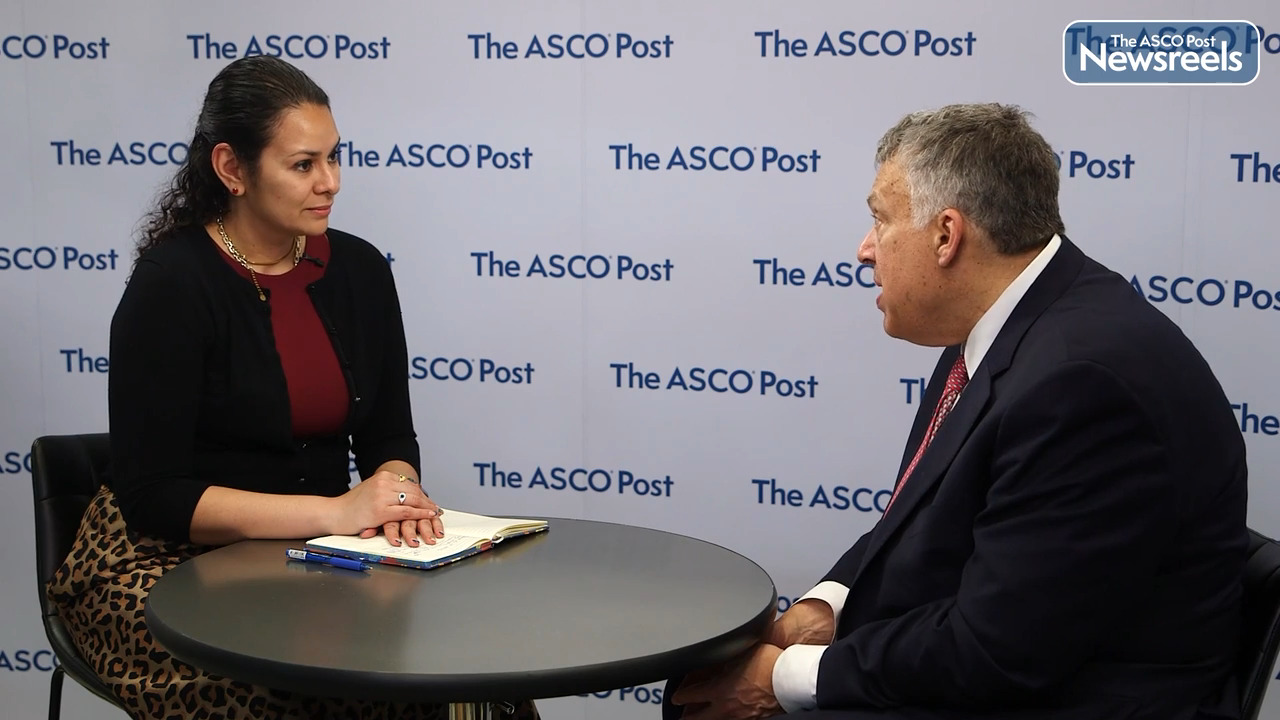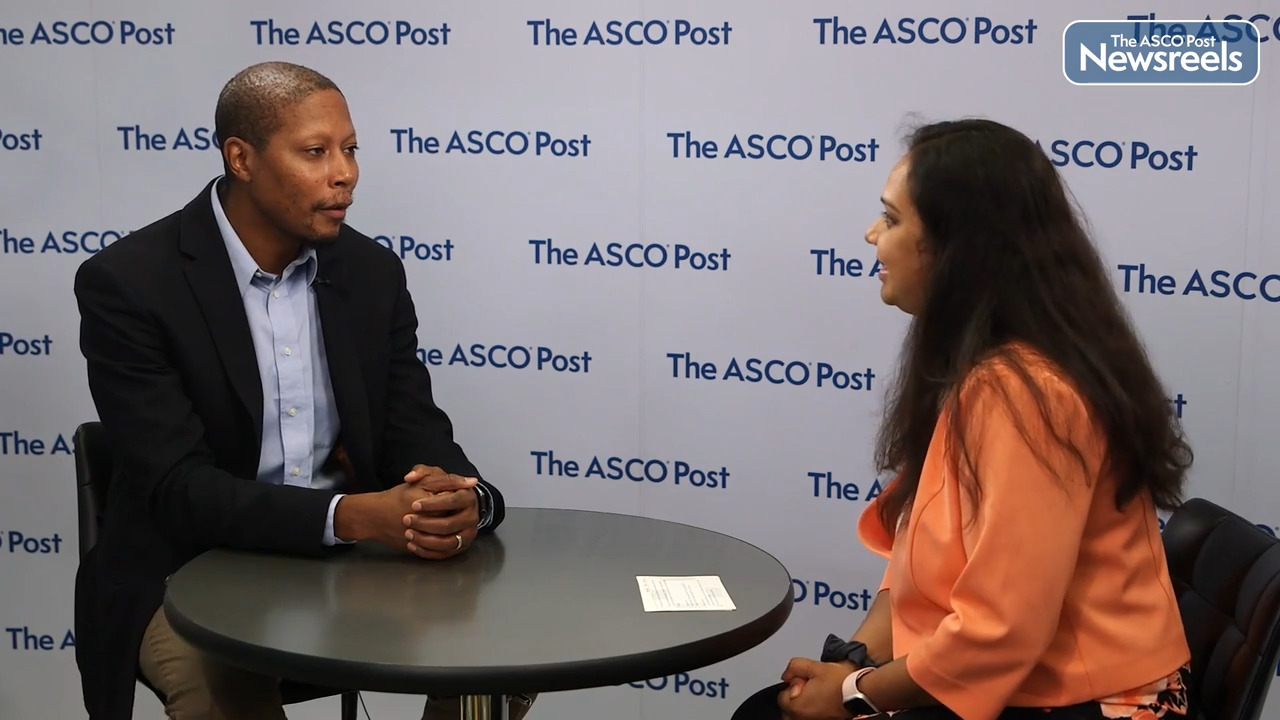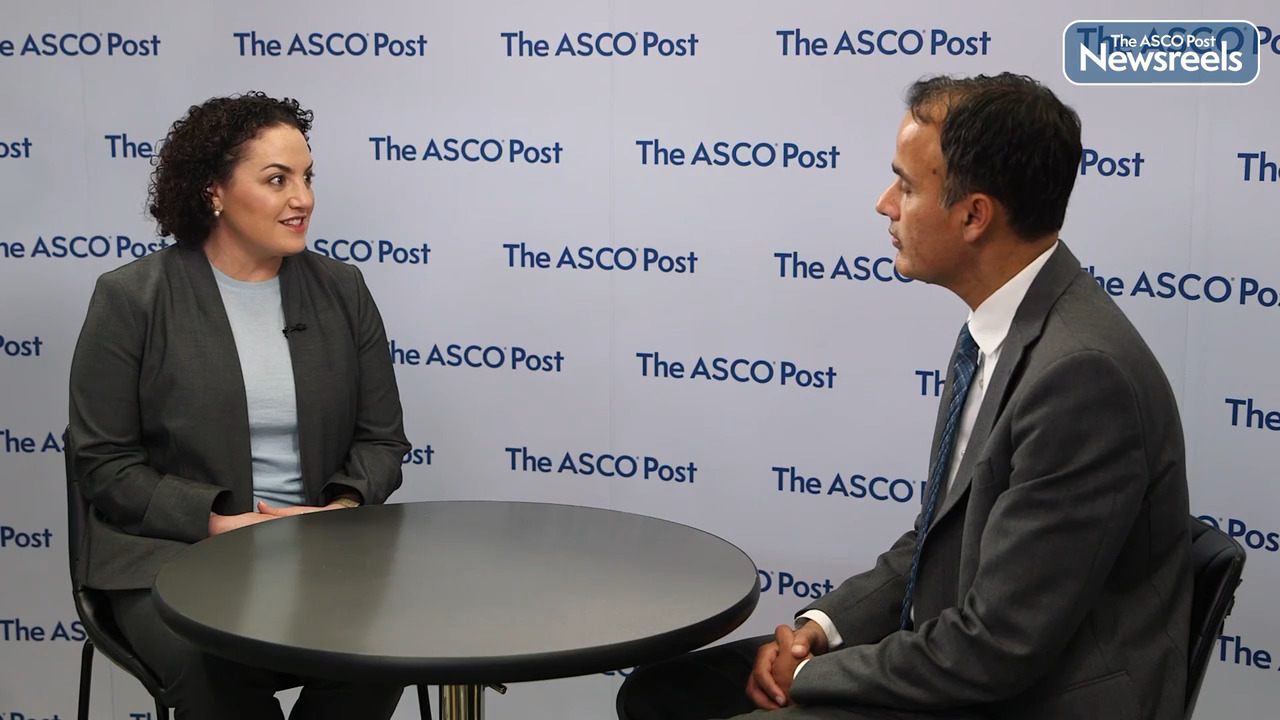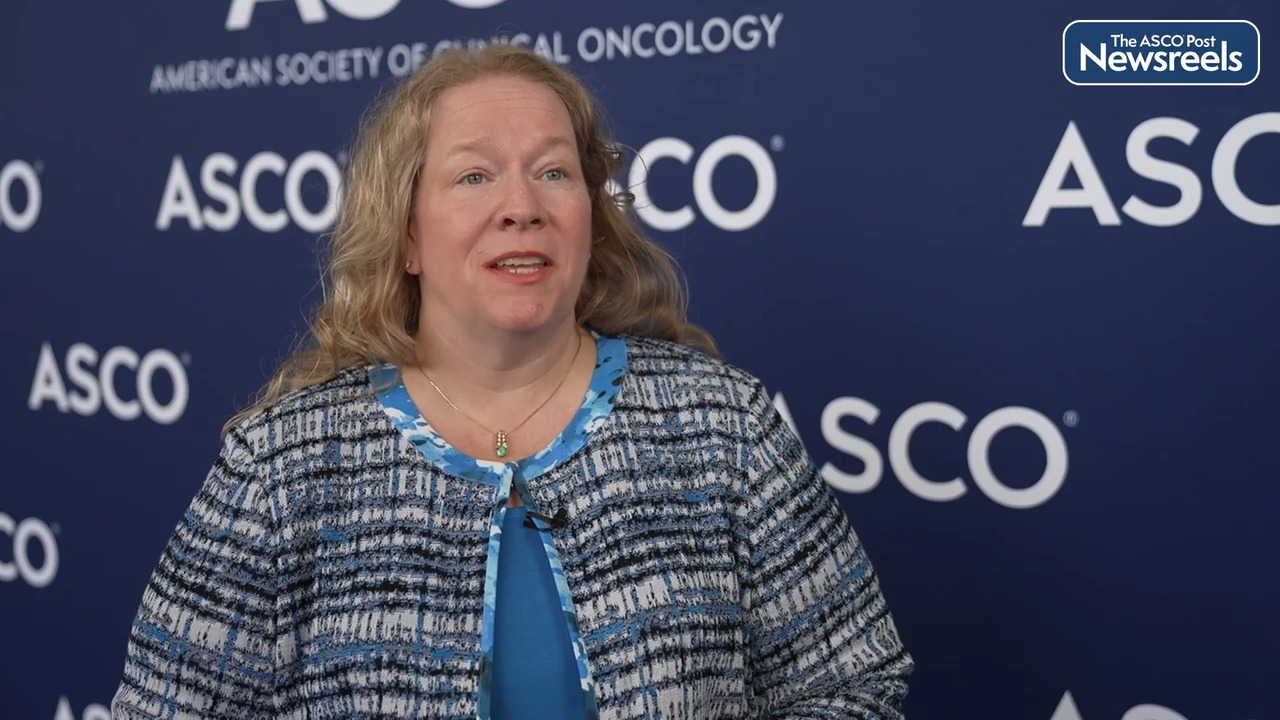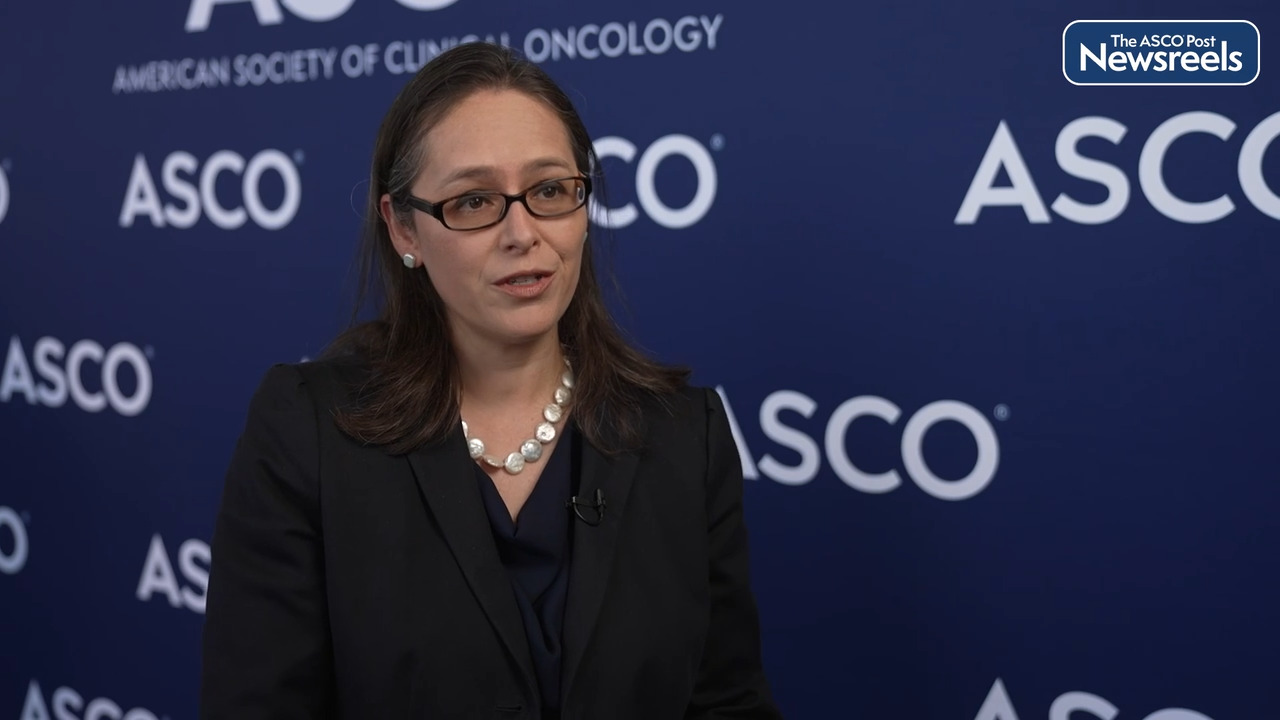Transcript
Disclaimer: This video transcript has not been proofread or edited and may contain errors.
At ASCO this year I presented updated results from Epcoritamab plus R2 for patients with relapsed or refractory follicular lymphoma. Each of those three drugs, rituximab, lenalidomide, and epcoritamab, has different modes of action. It was hypothesized that lenalidomide with its immunomodulatory properties might enhance the activity of epcoritamab.
In this study, patients received R2 over 12 cycles using standard dosing and two different doses of epcoritamab were tested, two different dose schedules. In arm 2A, patients received more frequent epcoritamab dosing, dosed weekly for the first three cycles, every two weeks for cycles four through seven, and every four weeks thereafter. Whereas an arm 2B, less frequent epcoritamab dosing was used every week for the first two cycles, and every four weeks thereafter.
In total 111 patients were treated and they had received a median of one prior line of therapy. Notably, patients had many high risk features in this cohort. Approximately 60% of patients had Stage 4 disease. About 40% of patients had progression of disease within the first two years of chemoimmunotherapy treatment, so-called POD24 patients, and approximately 60% of patients had a high risk FLIPI score.
The safety profile for this combination was similar to previous reports. The most common side effects included cytokine release syndrome, infections, and neutropenia. CRS was seen in about half of patients, but was primarily low grade with only 2% of patients having Grade 3 or higher CRS. CRS occurred over a predictable timeline. Almost all CRS occurred over the first two cycles, and most CRS occurred after the first full dose of epcoritamab, which was given on cycle one, day 15. Notably, CRS resolved in all patients and no patients discontinued epcoritamab based on cytokine release syndrome.
Among all patients the overall response rate was 98%, and the complete metabolic response rate was 87%, both of which are very high for this disease setting. Notably, all patients did well, including those with high risk features like POD24, primary refractory disease or high FLIPI scores. With almost a median of one year of follow-up, the one-year progression-free survival was 78% and the one-year duration of complete response was 89% suggesting that these responses are durable, at least so far. Responses seem to be durable for all patient subgroups, including those with POD24.
I think our data suggests that this combination leads to deep and so far quite durable responses with a manageable safety profile. Based on this encouraging data, there's an ongoing randomized Phase 3 trial comparing R2 to R2 plus epcoritamab among patients with relapsed or refractory follicular lymphoma. More broadly, I think this trial adds to a growing number of studies that suggest that CD3/CD20 bispecific antibodies are a very potent treatment for follicular lymphoma and will likely be an important part of our treatment for FL patients in the years to come.
